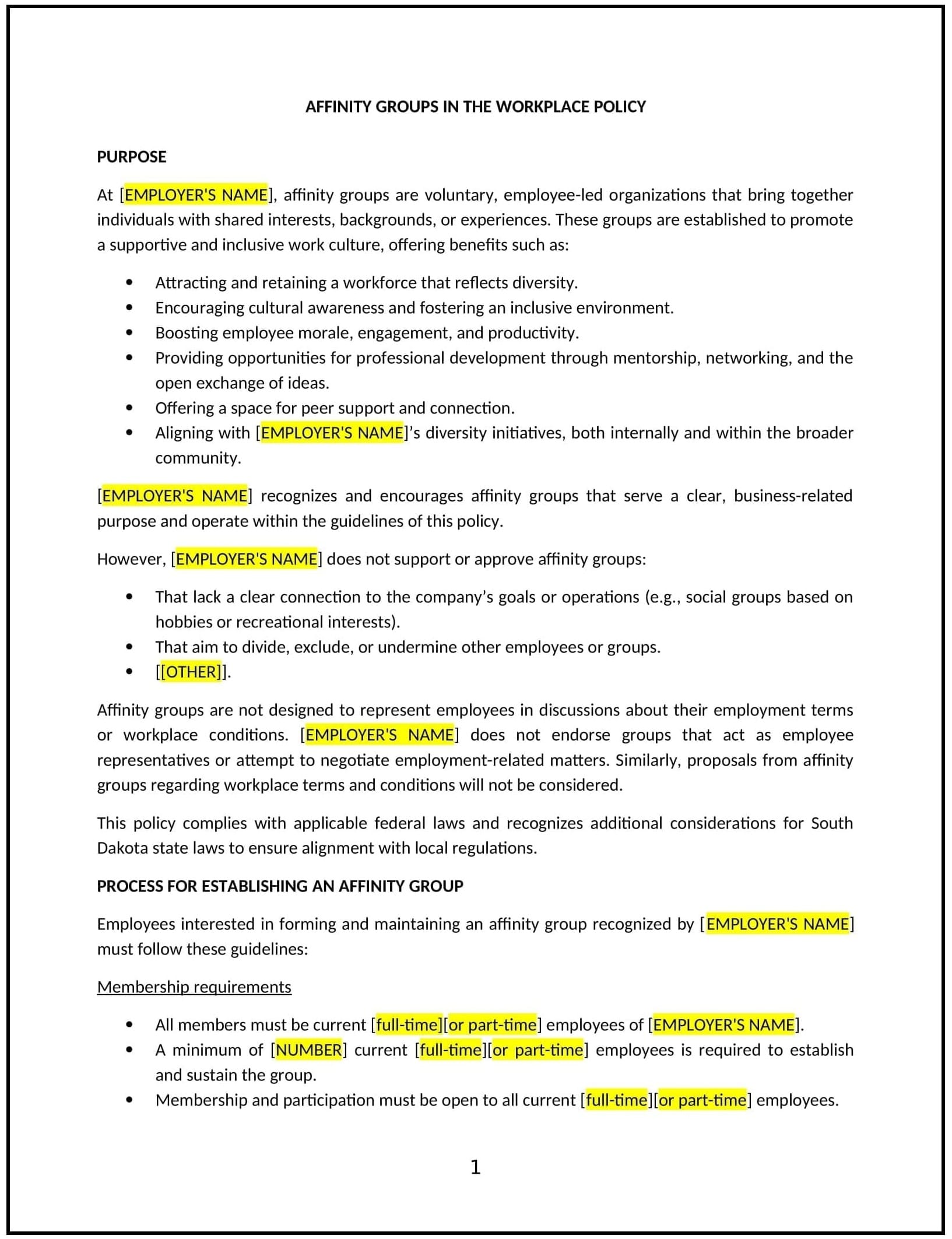Affinity groups in the workplace policy (South Dakota): Free template
Got contracts to review? While you're here for policies, let Cobrief make contract review effortless—start your free review now.

Customize this template for free
Affinity groups in the workplace policy (South Dakota)
This affinity groups in the workplace policy is designed to help South Dakota businesses support employee-led groups that promote diversity, inclusion, and professional development. It outlines guidelines for forming, managing, and participating in affinity groups.
By adopting this policy, businesses can foster a more inclusive workplace, enhance employee engagement, and align with general best practices for diversity and inclusion.
How to use this affinity groups in the workplace policy (South Dakota)
- Define affinity groups: Explain what constitutes an affinity group, such as groups based on shared interests, backgrounds, or goals.
- Establish formation procedures: Provide steps for employees to form affinity groups, including approval processes and required documentation.
- Outline group activities: Specify the types of activities affinity groups can organize, such as networking events, workshops, or community outreach.
- Set participation guidelines: Clarify who can join affinity groups and how employees can participate.
- Train managers: Educate supervisors on supporting affinity groups and promoting inclusivity in the workplace.
- Review and update: Assess the policy annually to ensure it aligns with evolving business needs and employee expectations.
Benefits of using this affinity groups in the workplace policy (South Dakota)
This policy offers several advantages for South Dakota businesses:
- Promotes inclusivity: Encourages a workplace culture that values diversity and inclusion.
- Enhances employee engagement: Provides employees with opportunities to connect and grow professionally.
- Supports professional development: Helps employees build skills and networks through group activities.
- Builds trust: Demonstrates a commitment to supporting employee-led initiatives and diverse perspectives.
- Supports reputation: Positions the business as a progressive and inclusive employer in the community.
Tips for using this affinity groups in the workplace policy (South Dakota)
- Communicate the policy: Share the policy with employees and include it in the employee handbook.
- Provide training: Educate managers on supporting affinity groups and promoting inclusivity.
- Monitor activities: Regularly review affinity group activities to ensure alignment with business goals.
- Address issues promptly: Take corrective action if any group activities conflict with workplace standards.
- Update regularly: Assess the policy annually to ensure it aligns with evolving business needs and employee expectations.